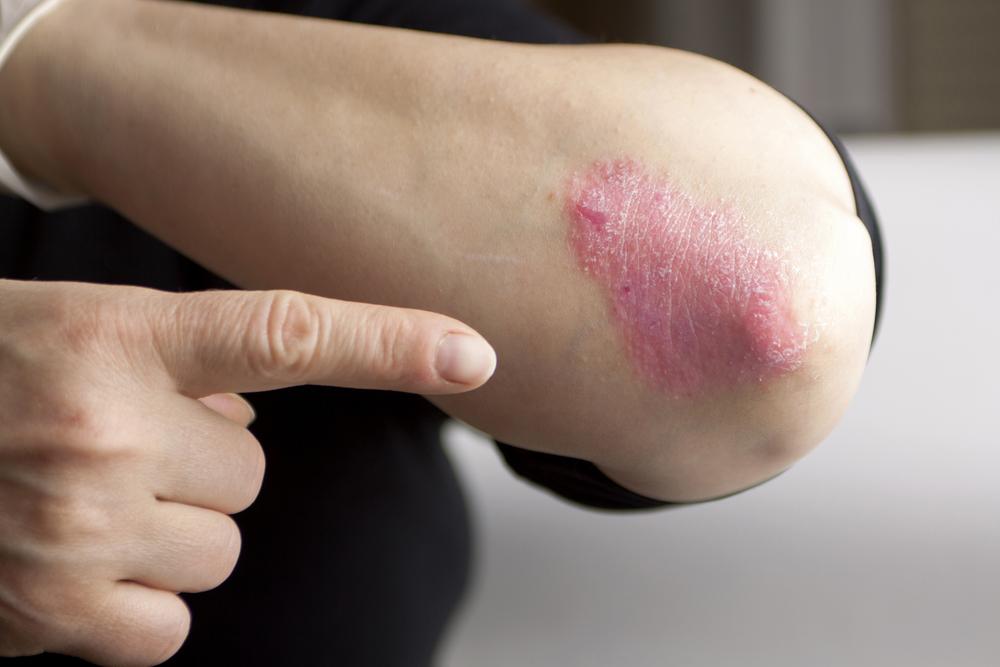Psoriasis Symptoms
Psoriasis is an autoimmune disease which normally causes red,itchy patches to appear over the skin.They maybe localized or spread all over the body.Psoriasis is a common skin condition that can affect anyone, although it’s more common in people between the ages of 15 and 35, according to the National Psoriasis Foundation. If you have psoriasis, your skin cells grow faster than normal.The body naturally develops new skin cells every month to replace skin that sheds or flakes off. With psoriasis, new skin cells form within days rather than weeks. This rapid growth causes dead skin cells to accumulate on the skin’s surface, resulting in thick patches of red, dry, and itchy skin.

Most cases of psoriasis go through cycles, causing problems for a few weeks or months before easing or stopping.A symptom is something the patient feels and reports, while a sign is something other people, such as the doctor detect. In cases of psoriasis, the signs and symptoms vary from patient to patient. In the majority of cases patients find their symptoms are cyclical – with problems occurring for a few weeks or months, and then easing or disappearing for a while.
Even though it is possible to sometimes have two types occurring simultaneously, most patients generally have just one form of psoriasis at a time. Some of the common symptoms often found in psoriasis patients are as follows:
Red patches of skin covered with silvery scales. These plaques may be itchy and painful and sometimes crack and bleed. In severe cases, the plaques will grow and merge into one another, covering large areas.
- Small scaling spots.
- Dry, cracked skin that may bleed
- Itching, burning or soreness
- Thickened, pitted or ridged nails. The nails may also begin to crumble or detach from the nail bed.
- Swollen and stiff joints
If you suspect that you may have psoriasis, see your doctor for an examination.

